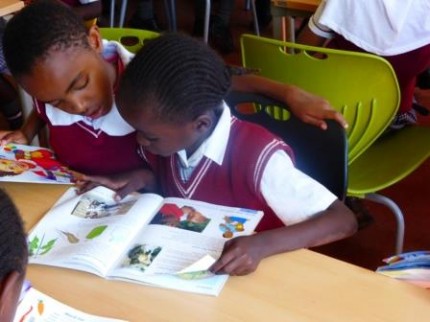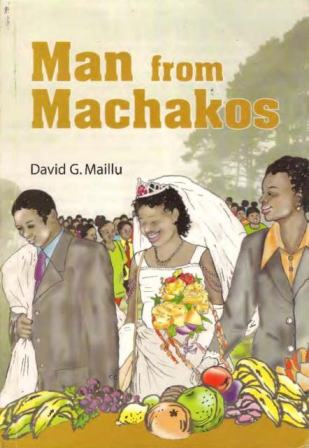Copyright and related rights in Kenya are protected by the Copyright Act of 2001 which came into force on February 1, 2003.
This law provides for the rights, the control and use of the rights; the administrative and enforcement structure; and the remedies for the infringement of copyright and related rights.
Right holders, in the case of copyright, include composers, authors and publishers while producers of sound recordings, performers and broadcasters hold related rights.
RELATED: New Book Enriches the Cultural and Creative Spectrum of Eastern Africa
Protection of Copyright and Related Rights in Kenya
1. Kenya, as a member of the Berne Union and the World Trade Organisation, has complied with the provisions of the Berne Convention and the TRIPS Agreement. The operative law in Kenya is the Copyright Act 2001.
Eligibility
2.Under the Copyright Act, works eligible for copyright protection include literary works (books, poems, computer programmes, etc), musical works, artistic works, audiovisual works, sound recordings and broadcasts.
3. These works shall be eligible for copyright protection if there is proof of sufficient effort to create the work and the work must be original and must be in any material form, including the digital format. Copyright confers automatically. There is no formality required for the enjoyment of copyright and related rights, that registration is not a prerequisite for the enjoyment of copyright. Once the idea has been reduced to any material form, copyright confers. All that the author has to do is indicate that the copyright is reserved.
Term of Protection
4. The term of protection is 50 years from the end of the year in which the author dies or the end of the year in which the work was first published or produced.
First Ownership of Copyright
5. If a person creates a work on commission, the person who commissions the work shall be the first owner unless there is a contract to the contrary. If one creates the work while in employment, the employer shall be the first owner of the work unless there is a contract to the contrary.
Rights Granted
6. Copyright grants both economic and moral rights. The moral rights are the rights to claim authorship of the work (the right of integrity) and the right to object to any distortion, mutilation or other modification of the work, or derogatory action that would be prejudicial to the author’s honour or reputation (the right of integrity). These rights are independent of the economic rights and cannot be assigned or transferred and are only accorded to human authors.
7. The Economic rights. The Copyright Act grants the copyright owner the exclusive rights to control the reproduction, distribution to the public (for commercial purposes by way of sale, rental, hire, loan etc), communication to the public as well as the broadcasting of the works.
8.The right to control the reproduction of the works is the legal basis for many forms of exploitation of protected works. The right of reproduction would be of little economic value if the copyright owner could not authorise the distribution of the copies. The author also has the right to authorise the translation or adaptation of his works.
9.These exclusive rights are subject to certain limitations and exceptions such as the use of the works for educational and scientific purposes, use for information and reporting current affairs etc. One can reproduce a single copy for personal use. Computer programmes are exempt from these exceptions.
Assignments and Licences
10. The owner of copyright, as any other property owner, can assign or license all or some of his economic rights. That means he can sell them or license other people to use them for a certain period at a consideration. The assignments or licences have to be in writing. The Copyright Act 2001 requires verification of the assignments and licences by the Kenya Copyright Board. The assignments or licences have to be in writing.
11. The moral rights, unlike the economic rights, cannot be assigned or licensed.
Infringement
12.The Law prohibits any person from exercising the exclusive rights conferred by copyright without the authorisation of the copyright owner, his licensee or assignee. The unauthorised reproduction and adaptation of copyright protected works amounts to infringement. These acts include unauthorised copying, distribution of unauthorised copies, rental and lending and are categorised as primary infringement.
13. Secondary infringement occurs when a person imports, possesses in the course of business, sells or lets for hire, offers for sale or hire, exhibits in public in the course of business or distributes in the course of business or otherwise to an extent that prejudicially affects the copyright owner.
RELATED: Kenya Wrestles with Non-Existent Reading-For-Leisure Culture
14. In the case of related rights that is, performers, producers of phonograms and broadcasting organisations, any exploitation of their rights without the right holders’ authority amounts to infringement.
Actions for Infringement
15.There are several remedies available to the copyright owner in case of infringement of his or her rights. These are civil remedies, criminal sanctions and administrative remedies.
16. The main purpose of civil remedies is to provide compensation for the prejudice caused by infringements. The courts can order the right owner to destroy the infringing copies to prevent further damage, or to dispose of equipment used for infringing activities appropriately and grant injunctions to prohibit further infringements.
17. Criminal sanctions include custodial sentences as well as fines or a combination of both. These are to be punitive as well as deterrent.
Enforcement and Administration
18. The law would be ineffective if not enforced. The main enforcement agencies are the police, customs and the judiciary. The Kenya Copyright Board is in charge of copyright and related rights in Kenya.
Collective Management of Copyright and Related Rights
19. The right owners can exercise their rights individually or collectively. This largely depends on the category of rights. Performing and performers’ rights normally require collective administration of their rights.
20. The Copyright Act 2001 provides for the collective administration of copyright and related rights and gives the requirements for the registration of a collective administration society.
Conclusion
The successful administration and enforcement of copyright depends on the Kenya Copyright Board, the enforcement agencies, the copyright owners and the users of copyright protected works.




